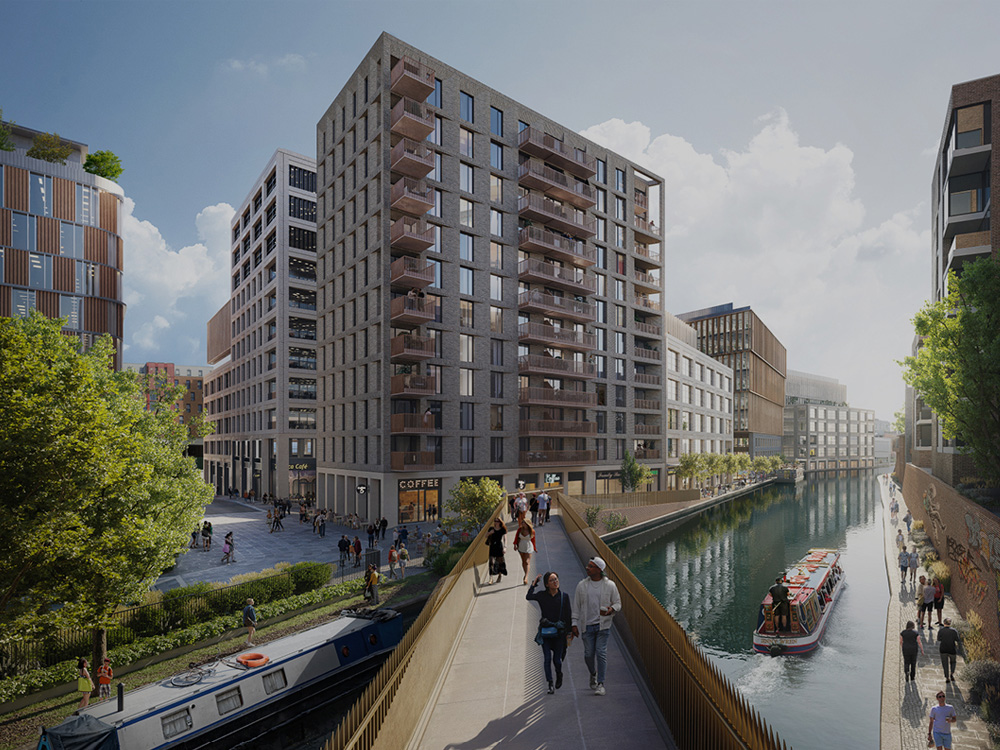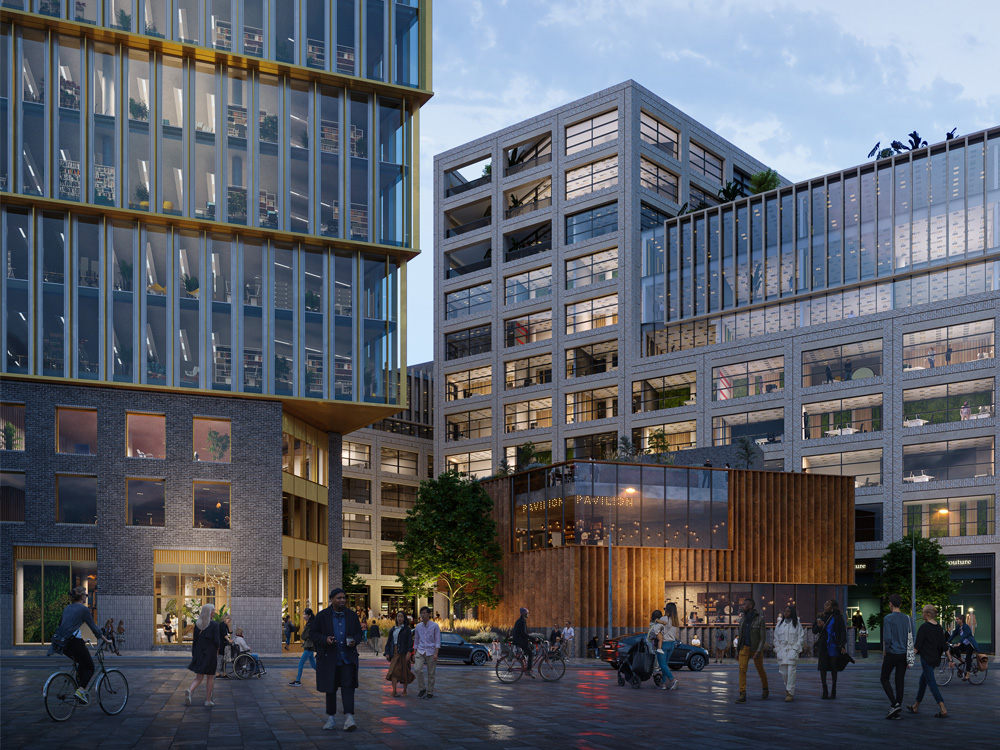Inclusive life science
The rapidly growing life science sector is competing for a limited pool of talent. 71% of companies are planning to grow their workforce in the near future and it is estimated that 133,000 jobs could be created over the next decade, 60% of which would require a level 6 degree.

The Knowledge Quarter in Camden, where Tribeca is located, is one of London’s significant life science locations. The borough is home to a diverse population with 40% from Black, Asian or other ethnic minorities. But in the UK, Black, African, Caribbean and Black British individuals occupy less than 1% of roles in the life science sector and only 9% of life science professionals are from a working class background. This is in part due to a lack of practical and achievable career pathways into the life science sector.
To address this challenge, a new cross-borough coalition between the London Boroughs of Camden, Islington, Westminster, Hackney, Tower Hamlets, Hammersmith & Fulham, Lambeth and Southwark in collaboration with MedCity and in partnership with life science organisations and healthcare providers aims to diversify the life science ecosystem, tackle inequalities and create opportunities for everyone.
The Journal spoke to Caroline Wilson, Director of Inclusive Economy and Jobs at Islington Council, and Matthew Lambert, associate at Reef, to learn more about the coalition and discuss what role the construction industry can play to contribute towards a more diversified and inclusive life science sector.
The boom is this sector is an enormous opportunity for local people and local companies to access world-class jobs and business on their doorstep.
The Journal: Can you give a brief overview of the coalition and its aims?
Caroline: Collectively, we wanted to seize the opportunities of the life science boom and build inclusive career pathways for local communities before new developments were coming forward. The LIFT programme in north London [a partnership between Camden, Hackney and Tower Hamlet Councils to offer residents new opportunities in the tech, science and digital sectors] set a precedent for this initiative, but LIFT retrofitted social inclusion to a sector that had its growth bubble six to ten years prior. This time we wanted to establish a talent pipeline early on. London is a hyper-diverse city and there is real potential for diversity and innovation here, which is why it appeals to life science companies and investors, as well as talent.
Matthew: The coalition brings academia, hospitals, trusts and developers together in the same room, allowing us to close the loop and work towards common goals that elevate the life science ecosystem. Life science can feel exclusive and impermeable, but there are so many different types of jobs and pathways into employment that don’t involve a university degree. One of our big tasks therefore is to demystify the sector and pair the right job with the right person.
The Journal: How are you working with life science organisations and what is the level of interest from the sector?
Caroline: Businesses are really up for this but they don’t always have the time or the connections. That’s where we come in. Our work is to make it as easy as possible for businesses to do the right thing. We can help applicants with CVs and talk to employers about their recruitment strategies to support people with special needs. We also create synergies between the councils’ ambitions and the ESG commitments of developers like Reef. It is really powerful when a developer creates a facilitating environment where it is simple for commercial tenants to deliver the S of their ESG strategy. By signing up to the coalition, developers can unlock connections to talent – students, communities, young people and local businesses. Once someone gets into the life science sector, companies can offer fantastic progression to higher-paid jobs and new life opportunities.
Matthew: Reef and other developers can offer routes into the life science sector via construction jobs and apprenticeships. Many skills, for example management, data analysis and marketing, are transferable to the life science sector. One focus could be on adult further education, people 18 years and older, partnering with colleges to explore how we can forge new pathways and stepping stones for people without having to commit to long and expensive degrees. As a developer, we supply one pipeline but there are many others.
Are these new channels starting to shift the life science sector towards becoming more representative of London’s diverse communities?
Caroline: We hope that it will as the initiative scales up. The representation in the LIFT programme, which has been running since 2021, is 65% female, over 70% people of colour and 15% people with disabilities. Those are the levels of participation we are aiming at. Ultimately, we are working with communities that are living next door to development sites and the developers to ensure that new buildings provide jobs for local communities. Often, people in Camden Council’s housing estates think that new jobs aren’t open to them, but we say that they absolutely are, and there are really practical career paths into those glass towers, or into those dry and wet labs for local people and future generations, whether this through boot camps, internships or supported interview processes. The boom in this sector is an enormous opportunity for local people and local companies to access world-class jobs and business on their doorstep. As a coalition of councils, we are up for working with progressive developers like Reef and employers, to build a super-cluster in central London that is recognised internationally for its commitment to inclusion.


